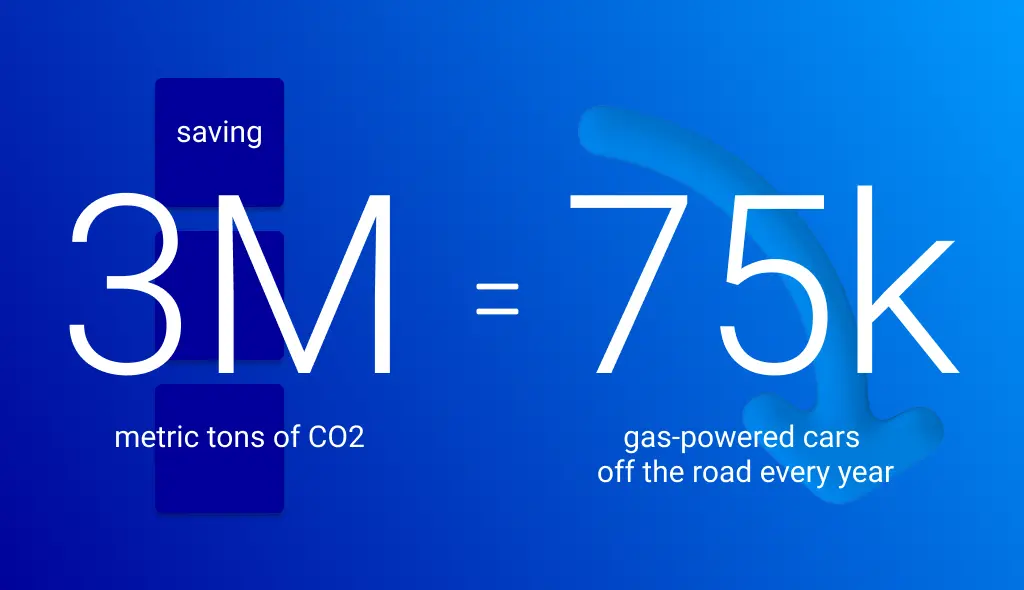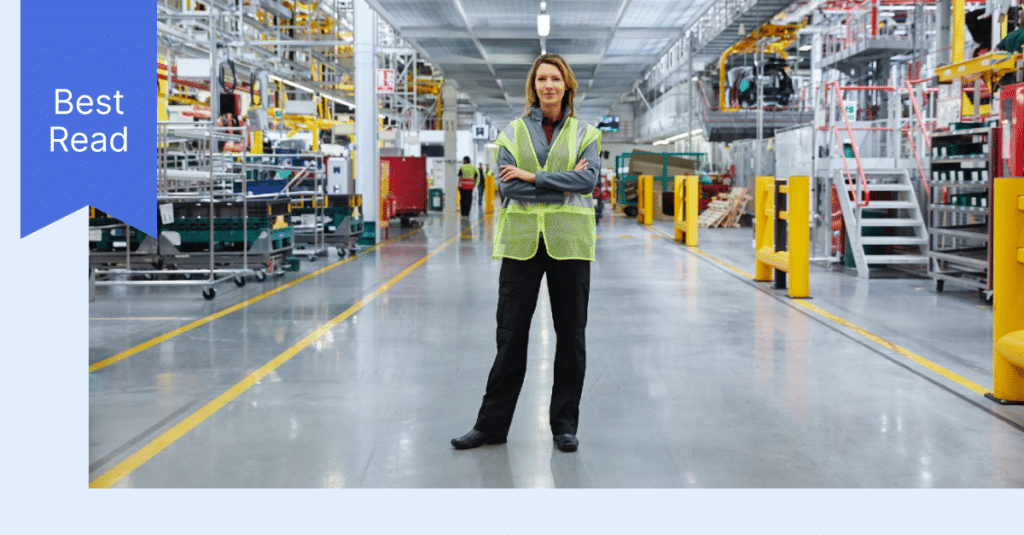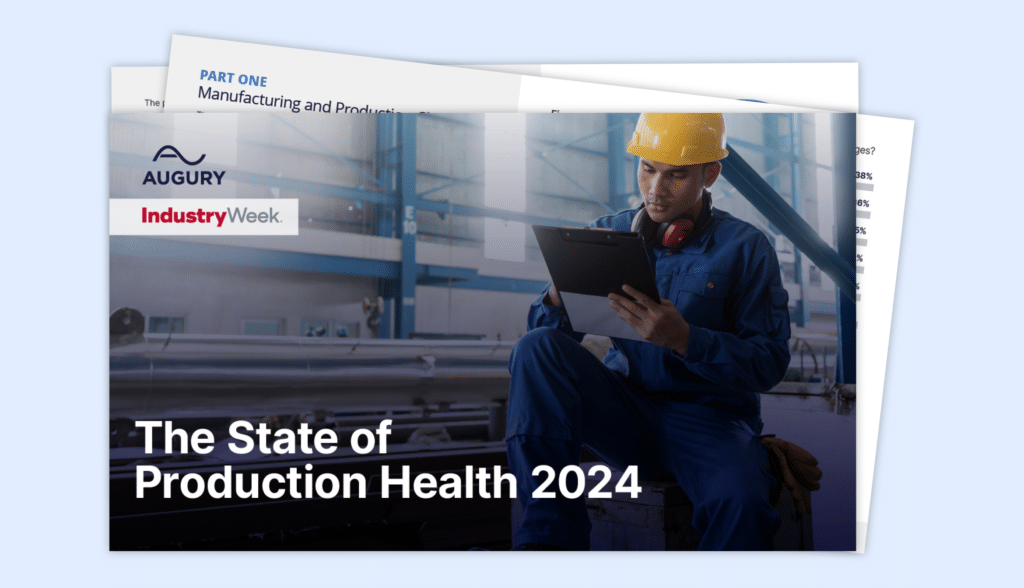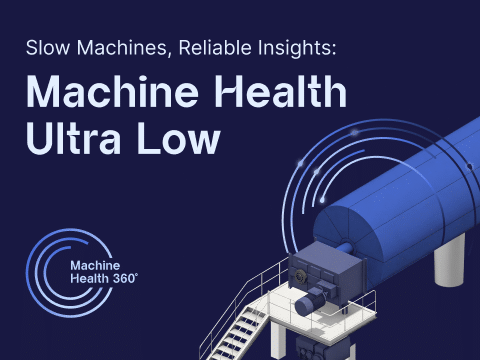
A sustainability report using CRANE’s model, which estimates future emissions reductions, shows how companies such as Augury allow manufacturers to immediately tackle environmental issues while also streamlining production. “The report is saying nothing exotic: by running your assets more efficiently, you emit less. It’s a double win,” says Augury’s James Newman.
This article was originally published on September 19, 2022.
Better Production For Plant and Planet
“It’s always good to plan ahead – but not if it paralyzes you in taking action now,” says James Newman, Augury’s Head of Product and Portfolio Marketing. He’s feeling bullish in response to a recent report that highlights how manufacturers can start today – not one day – in cutting their emissions.
It’s as simple as making your machines run more efficiently. “It’s really not rocket science. Augury’s AI-driven insights into Process Health and Machine Health work to improve production for both your plant and the planet.”
It’s really not rocket science. Augury’s AI-driven insights into Process Health and Machine Health work to improve production for both your plant and the planet.
“Manufacturing represents around 24% of global carbon emissions,” according to the ‘2022 Eclipse Carbon Optimization (ECO) Report – Quantifying Sustainability for Technologies Enabling the Industrial Evolution’. “The overwhelming majority of the carbon intensity comes from energy and waste. Eclipse Ventures’ portfolio companies focus on enabling increased efficiency through higher yield, more productive assets, and ultimately, far lower energy intensity per unit of production. Some of the companies addressing the carbon intensity of the physical world include Bright Machines, Augury, and Arc.”
Industrial Evolution
The Eclipse Carbon Optimization (ECO) Framework uses the open-source CRANE’s model, which estimates future emissions reduction “much like an investor would evaluate an investment’s future revenue and profit potential.”
Developed by climate nonprofit Prime Coalition and in partnerships with ESG advisory firm Rho Impact, Eclipse Ventures applied this methodology to 11 companies in its portfolio to better understand their carbon reduction potential.
“With our ECO Framework, we are able to dynamically assess a technology’s economic value potential and its environmental value potential, both now and 10 to 20 years into the future,” the report states. “Our goal is to reveal the true promise and impact of that technology in order to build and increase investor and public confidence in companies transforming physical industries.”
“It’s great they are now able to make these kinds of assessments,” says James. “It clearly measures the before and after states of Augury’s solutions so you can see the tangible impact it has on your energy consumption, which by extension is directly tied to your energy emissions. It’s an amazing tool – and will only become more accurate moving forward.”
We can double a manufacturer’s impact by doing what they should be doing anyway: making their assets run better than they were running before.
Cutting Emissions. Now. And Without Fuss.
The report estimates what Augury brings to the table in terms of cutting emissions: “Due to higher uptime, more efficient energy use, and higher yield, Augury cuts emissions by ~12%, resulting in 3 MMtCO2 reduced annually by 2040.”
To put it into more concrete terms: saving 3 million metric tons of CO2 annually is the equivalent of taking around 750,000 gas-powered cars off the road every year.
“But what I think will get people most excited is how this doesn’t involve anything exotic,” notes James. “Most sustainability programs involve buying new assets, switching over to alternative fuels or some sort of offsetting – and there’s nothing wrong with any of these efforts. But we can double a manufacturer’s impact by doing what they should be doing anyway: making their assets run better than they were running before.”

Impact: Not Additive But Multiplicative
“And this is really just the tip of the iceberg,” says James. “I see a lot more good news in what the report doesn’t cover. Not only are they using the lowest possible numbers to manage expectations, but the report is also very USA-centric. I’d like to know the numbers on a world level – especially when it comes to the global manufacturers who are our current target verticals.”
As the report makes clear, the CRANE analysis also did not factor in the energy and utilities sector, where Augury is now also active, but only included “traditional” manufacturing rotating equipment based on the company’s existing verticals. “Further, we do not assume any emissions reductions from the elimination of product waste during manufacturing downtime,” the report states. “We will make adjustments based on Augury’s progress in the next report.”
“Indeed, you’ll see a huge jump in our performance in the next report,” says James. “Especially since it will also include the impact of our acquisition of Process Health leader Seebo. As we leverage our ability to combine what we do on a machine level and on a process level, the impact will not be additive but multiplicative.”
It has become even more evident that our physical industries bear the greatest responsibility for fulfilling the needs of people worldwide.
Time is Ticking
Eclipse obviously takes seriously its mandate to invest in technologies that can drive sustainability today, and not just in some unknown future.
“In recent years, it has become even more evident that our physical industries bear the greatest responsibility for fulfilling the needs of people worldwide,” the report states. “Yet, the aging systems and processes upon which physical industries were built have brought forth dire consequences – our environment is at a critical juncture, and if we do not act now, the well-being of our society and planet will be jeopardized.”
To learn more about how Augury is meeting the challenge in our race against the clock, reach out! Meanwhile, you can also read more about sustainability and ESG here.




